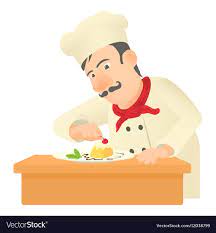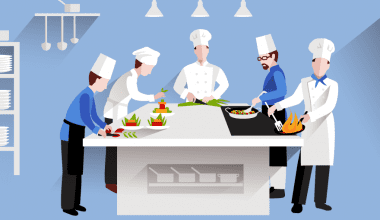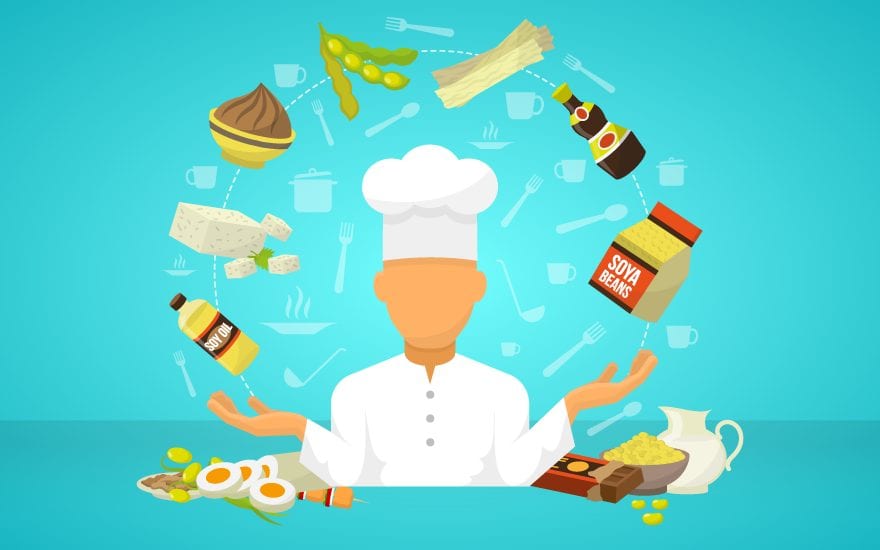Mon-Sat 9am-7pm



As a Chef de Cuisine, you should have extensive knowledge of food sanitation and safety. You should also hold an associate degree in Culinary Art or a similar certifications. In addition to this, you should provide a high level of customer satisfaction.
You should possess extraordinary leadership skills and the ability to work for a long period of time. You should also have good communications skills and excellent decision-making abilities.
If you have the capability to operate our kitchen smoothly, then send in your job applications right now.

01Step
If you are still wondering how to become a chef after 10th or what to do to become a chef. Then we have provided exact details for you of a chef career path.
To establish a career as a chef and learn functional skills, then you must pass your 10+2 or equivalent examination in any stream with an aggregate of 50 per cent marks from a recognised board.
02Step
We have provided you with the chef career path that involves academics for better learning of the industry before turning into a professional chef. To establish a career as a chef, you must appear in entrance examinations conducted by hospitality colleges and chef career college.
The minimum requirement for the entrance examination, candidates must have appeared in the 10+2 examination. Here, in this article, we will discuss how to become a chef.
03Step
After successful completion of 10+2, candidates are required to enrol in a bachelor's degree programme.
04Step
There are several options that one can choose post-bachelors to lead their chef career path. We have mentioned the two major options for the chef career path below:
Option1: After completion of a bachelor’s degree in culinary arts or hotel management, students can further continue their studies and opt for a master’s in the related specialisation. After completion of a master’s degree, they can start working in the industry at an entry level.
Option 2: After completion of a bachelor’s degree, the candidates can start working in the industry in an entry-level role. After gaining an experience of a few years, they can further resume their studies and opt for a master’s degree in a related specialisation such as catering technology, hospitality, culinary arts and hotel management.
Due to the range of cuisines and settings in the profession, it's common for chefs to learn by working in various kitchens throughout their career. You may choose to leave your current role for a new challenge in the same kitchen, or a similar position in another environment.
Depending on the location of arising vacancies and what your aims are, you may need to travel or even relocate to access the opportunity you are looking for.
With further study, such as an undergraduate degree or a Masters, you could become a nutritionist or dietitian. Another option is to train as a food technology/cookery teacher or assessor, working for a college or training provider.
As an experienced chef with significant knowledge of food, leadership and budgeting skills, you could become a head chef or executive chef but this takes time and commitment. With substantial experience and recognition, you could become a private chef working at weddings, functions or events.
Other long-term career prospects include:
Salaries vary significantly depending on the type and location of the establishment you work in. For instance, a sous chef in a Michelin-starred restaurant may earn more than someone in an equivalent position in contract catering. Similarly, a chef in a fast-food restaurant will most likely have a lower salary than one in a fine dining one.
As a chef, you likely have a set of dependable tasks to complete each day. This is helpful if you prefer to know what to expect out of each workday so you can prepare for your shift. As an example, each day, you may expect to prepare ingredients for meals, send food orders to distributors, cook food as needed, visit patrons to ask how their meal is and close the kitchen.
As a chef, you may have the ability to use your creative skills to make and cook dishes. Chefs can create new dishes, experiment with ingredients and revise old recipes to fit their own tastes or the requirements of their customers. This is a freedom that many other professions don't provide, so this can be especially appealing for this career path.
Many restaurants offer their staff, including chefs, discounted or even free food. As a chef, you may receive free or discounted food after your shift ends or on your lunch break. In this role, you also might get to try new recipes and dishes and sample these meals as well. This may help you save on food expenses and can be an added benefit of the job.
In this role, you can gain excellent cooking skills and knowledge of the food and restaurant industry. Most chefs have basic cooking skills, but after a couple of months working in the role, you may earn many new ones that improve your cooking ability and professional skills. Earning these skills can also help you secure higher-paying chef jobs at other establishments in the future.
Professionals chefs make a decent national average income and have a promising job outlook over the next couple of years. Chefs earn an average yearly income of $45,854 per year. According to the United States Bureau of Labor Statistics (BLS), job opportunities for chefs and the related field of head cooks are expected to rise 25% from the years 2020 to 2030. Aspiring chefs may expect many job opportunities in the future.
:As a chef, you're likely on your feet much of the day, cooking and preparing food. You may experience some physical stress and get tired or uncomfortable during the workday. Taking breaks, getting enough sleep, eating healthy food and staying hydrated can help you ease any physical stress you may endure during your workday.
Any type of company or organization may experience displeased customers, and as a chef, you may encounter restaurant patrons who don't like your food or are unhappy with their dining experience. This is common but is fixable most times. Attempting to accommodate displeased customers and speaking with them directly can help turn their dining experience into a happier one.
As a chef, you may face long working hours. Some chefs work six to 10 hours each day, and sometimes even longer depending on the restaurant. Kitchens often have fewer chefs than other staff, so if any other chefs' schedules don't allow them to fulfill their shift, you may have to fill in for them. You can prepare for shifts by attempting to get enough sleep the night before and eating quality meals, and during your shift, take breaks often.
Chefs often have busy schedules that can be challenging to manage. Sometimes chefs don't know what their specific work schedule is in the future until the week of or the week before, which may prove challenging for scheduling other commitments. As a chef, you may work late nights, weekends and holidays. Using a planner and calendar can help you keep track of your busy work schedule and any commitments you have in your personal life.
Most entry-level chef jobs don't offer benefits, such as medical, life or dental insurance, outside of hourly wages. Some restaurants or dining establishments may offer bonuses at the end of the year, but you shouldn't expect this from your role. Most high-paying, full-time chef jobs do offer benefits and additional compensation, so this may be an option once you've gained experience in the field and can advance in your career.
Call us at +91 9205084085, Monday - Friday, 9 am - 7 pm


